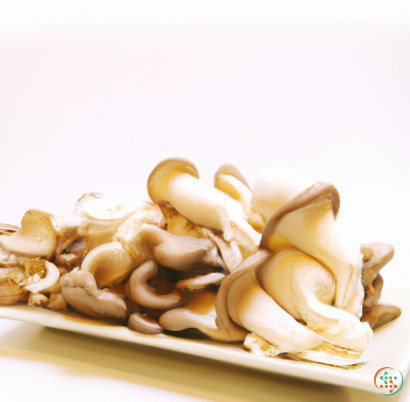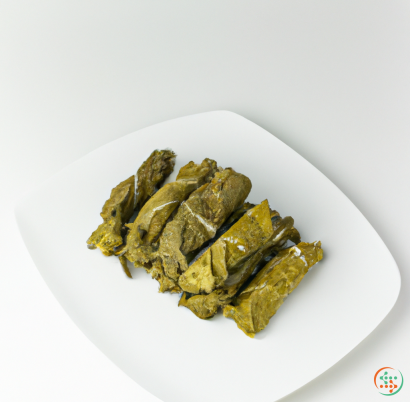Soursop
Have you ever heard of soursop? Chances are, if you haven’t, you should! Soursop is an incredibly versatile and incredibly healthy tropical fruit and it’s often overlooked. Native to many parts of Central and South America and the Caribbean, soursop is an evergreen tree belonging to the Annonaceae family, and its fruit has distinctive prickly spines on the outside. The soursop fruit can reach up to 15 inches in length and average about six to seven inches. While the skin is green with short, little spines, it softens and turns yellow when it’s ripe. The soft yellow fruit is usually contorted and full of bumps, appearing somewhat like a gigantic brain.
The edible part of a soursop is the white, fleshy surrounding its seeds. Its flavor is unique, a combination of an intense sour juice mixed with a subtle sweetness. This makes it excellent both as a drink or dessert. Different cultures use it in a variety of ways, but its major use is in making juice, smoothies, sorbets, and ice cream.
So why should you try soursop? Well,not only is the taste delicious, but the nutritional content of soursop is outstanding. They are an excellent source of vitamins C and B-complex, as well as essential minerals like calcium, potassium, phosphorus, and magnesium. In addition, they are very low in calories and fat, making them a great snack for those watching their waistlines.
Soursop has a plethora of health benefits as well. For example, it’s believed to have anti-cancer properties, which are due to the Combretastatin A-4 compound (also called annonacin), a natural compound found in the fruit. The anti-cancer properties have only been tested in laboratory studies thus far, and it’s not certain if the effects extend to humans, however, the possibility is very promising.
In addition to its possible anti-cancer benefits, soursop has been found to have excellent immune-boosting and antioxidant properties as well. It’s also thought to tremove toxic waste from the body, help regulate cholesterol levels, improve digestion, and aid in treating inflammation.
Some people even believe that soursop has special healing powers and use the fruit to help treat a variety of health issues. One example is rheumatism: some people believe that using soursop juice to massage their joints and muscles improves the symptoms of rheumatism. However, it’s important to note that these are merely anecdotal stories and that more research is necessary to confirm its efficacy for any medical complaints.
Soursop can easily fit into your regular diet if you’d like to give it a try. In most parts of the world, it’s sold by vendors as a fresh fruit, however, it’s also available in canned and frozen versions. In North America, you can usually find one of these forms in the grocery store’s ethnic aisle. You can add soursop to salads, use it in smoothies, or enjoy it plain as a snack.
In conclusion, soursop is an amazing fruit with a unique flavor and plenty of potential health benefits. Besides its excellent taste, it’s loaded with essential vitamins and minerals to keep you healthy. Whether you use it to make a refreshing smoothie or add it to your favorite recipes, adding soursop to your diet can only be a good thing!
Soursop, or graviola, is a tropical fruit native to Central and South America and parts of the Caribbean, and is considered part of the greater Annonaceae family of fruits. It is known for its enticing exotic sweetness, along with its unique spongy texture. Its tart and tangy flavor, combined with its creamy texture make it a popular choice for many, who enjoy its refreshing and delicious taste.
As a tree-ripened fruit, soursop is one of the few that can be collected as soon as it is ripe, as opposed to having to wait until it's off the tree first. This means that it is able to travel further distances and still retain its delightful flavor.
Soursop is packed full of beneficial antioxidants and other vital vitamins, making it an important part of any health and wellness program. It can be enjoyed in many forms: fresh, dried and powdered, or as a juice or ice cream topping. By looking at the process of a fresh soursop reaching our dinner plates, we can explore how this delicious and nutrient-rich fruit comes to us, as well as the vital steps taken in its creation and journey.
The first step in the soursop process is the growth of the tree and fruit. This process starts with a small seed, called the Soursop seed, which must be planted in an area with favorable conditions such as a tropical or subtropical climate, plentiful sunlight and moisture, and an acidic soil. Given the right environment, the seed will begin to sprout and then grow into a tree, eventually bearing lovely white flowers that give way to small green pods, or fruit. The fruits typically grow in clusters and can take from seven to nine months to be fully mature and ready for harvest.
During this time, the soursop will go through several stages. In the early growth stage, the fruit is a vibrant green color and has hard skin. As growth continues, the fruit will grow larger, take on a yellow hue, and its skin will begin to soften. It is at this point that the fruit is ready for harvesting.
The harvesting of a soursop can be a sensitive process, as the fruit must gently be plucked off the tree at just the right time. If harvested too late or too early, the soursop's flavor can be damaged and adversely affect its taste. As soon as these fruits are picked off the tree, they start to ripen and need to be handled with utmost care to preserve their quality and preserve the soursop's taste.
It is at this point in the process that the soursop starts its journey towards the dinner plate. After harvesting, the soursop is then washed and moved to a packaging house. At the packaging house, each fruit is carefully inspected and any that do not meet the rigorous standards are removed. The remaining soursop is then washed again, sorted based on size and quality, and placed in protective packaging.
This packaging is crucial, not only to ensure the freshness and quality of the soursop, but also to protect it from any damage that might be inflicted during its journey. The final stage in the packaging process is the labeling and tagging of the soursop, which allows processors and retailers to identify the batch and its origin.
Once packaged, the soursop can then be shipped to its destination. During transport, the soursop is typically kept at temperatures that are slightly chilled, but not frozen. Keeping the soursop cold helps to maintain its flavor, texture and nutritional value, allowing it to remain in optimal condition by the time it reaches the consumer.
The soursop then arrives at its destination: the store where it will be purchased, or your local restaurant or grocery store. Here, the soursop is inspected and prepared for sale. Consumers can either purchase it fresh from the store, choose from a range of pre-prepared soursop dishes, or even pick it up from a local farmers market.
The soursop is then ready to be taken home and prepared. Preparing fresh soursop requires very little effort. It can simply be rinsed, cut into cubes and eaten as is, or added to a salad or fruit smoothie. It can also be used as an ingredient in custards and sauces, or cooked in many other savoury dishes, giving them a unique flavor.
By now, the soursop has made its way from its origin in the tropics to our dinner plates, a long journey worthy of the reward of its delicious and nourishing taste. USing its steps as an example, we can marvel at the way in which all elements of nature come together to bring us these wonderful fruits. From its sproutling in what could be a faraway land to its debut on our dinner plates, the soursop provides us with something truly special that enriches our lives with its exotic sweetness and nutrient-richness.
In conclusion, a soursop’s journey from seed to dinner plate starts with the ever-vital process of planting. The growth and maturation of the tree and fruit are then followed by careful harvesting and packaging, which then leads to its being transported in refrigerated conditions before arriving at the store. Here, it is prepared for the consumer and, after some simple steps of preparation, the soursop is finally ready to be enjoyed.
Indeed, each and every step of the soursop’s journey requires attention to detail, whether it be by the farmer tending the tree, or the consumer selecting and preparing the fruit. By taking the time to understand the process behind the soursop’s creation, manufacturers and consumers alike can ensure that the precious flavors and health benefits of this remarkable fruit are optimally preserved and enjoyed.
| Beta-Carotene | 0.001 mg | |
| Vitamin E | 0.08 mg | |
| Vitamin K | 0.4 ug | |
| Vitamin C | 0.0206 grams | |
| Vitamin B1 | 0.07 mg | |
| Vitamin B2 | 0.05 mg | |
| Vitamin B3 | 0.9 mg | |
| Vitamin B4 | 0.0076 grams | |
| Vitamin B5 | 0.25 mg | |
| Vitamin B6 | 0.06 mg | |
| Vitamin B9 | 0.014 mg |
| Calcium | 0.014 grams |
Daily Value 1.3 g
|
| Iron | 0.6 mg |
Daily Value 0.018 g
|
| Magnesium | 0.021 grams |
Daily Value 0.4 g
|
| Phosphorus | 0.027 grams |
Daily Value 1.25 g
|
| Potassium | 0.278 grams |
Daily Value 4.7 g
|
| Sodium | 0.014 grams |
Daily Value 2.3 g
|
| Zinc | 0.1 mg |
Daily Value 0.011 g
|
| Copper | 0.09 mg |
Daily Value 0.9 mg
|
| Selenium | 0.6 ug |
Daily Value 0.055 mg
|
| Tryptophan | 0.011 grams | |
| Lysine | 0.06 grams | |
| Methionine | 0.007 grams |
| Total Sugars | 13.5 grams |
per 100g
|
| Palmitic acid (16:0) | 0.04 grams |
|
| Stearic acid (18:0) | 0.01 grams |
|
| Total Saturated fatty acids: | 0.05 g | |
| Oleic acid (18:1) | 0.09 grams |
|
| Total Monounsaturated fatty acids: | 0.09 g | |
| Linoleic acid (18:2) | 0.07 grams |
|
| Total Polyunsaturated fatty acids: | 0.07 g | |







